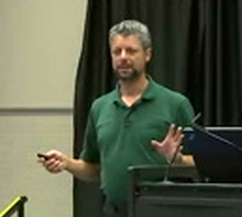CppCon 2014 Meta Techniques: Heterogeneous Polymorphism&Fast Prototyping at Facebook--Marcelo Juchem
 While we wait for CppCon 2015 in September, we’re featuring videos of some of the 100+ talks from CppCon 2014. Here is today’s feature:
While we wait for CppCon 2015 in September, we’re featuring videos of some of the 100+ talks from CppCon 2014. Here is today’s feature:
Meta Techniques: Heterogeneous Polymorphism & Fast Prototyping at Facebook
by Marcelo Juchem
Summary of the talk:
As data driven systems evolve there's an ever growing demand for bringing new functionality into existing systems in an efficient, maintainable and least intrusive manner. When implementing features with different semantics or interfaces, virtual inheritance requires a compromise between design simplicity and performance. This implies a need for new techniques to achieve heterogeneous polymorphism efficiently. With C++11 and 14, type lists, type maps and variants can now be trivially implemented by the initiated. Facebook moves fast so we quickly adopted the new standards to further explore the capabilities of the type system. This talk demonstrates some meta-programming techniques like reflection and compile-time built structures to achieve heterogeneous polymorphism and fast prototyping.

 The C
The C  While we wait for CppCon 2015 in September, we’re featuring videos of some of the 100+ talks from CppCon 2014. Here is today’s feature:
While we wait for CppCon 2015 in September, we’re featuring videos of some of the 100+ talks from CppCon 2014. Here is today’s feature: While we wait for CppCon 2015 in September, we’re featuring videos of some of the 100+ talks from CppCon 2014. Here is today’s feature:
While we wait for CppCon 2015 in September, we’re featuring videos of some of the 100+ talks from CppCon 2014. Here is today’s feature: If you are confused about the topic, read this article:
If you are confused about the topic, read this article: